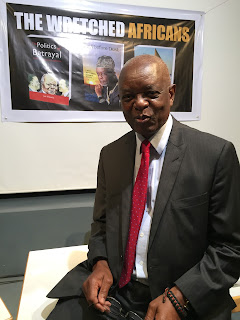The violence that took place after the 2007 elections was the closest the country came to a complete disorder since the 1982 coup attempt. Those who witnessed one or both of the two bloody events would want to be spared of another.
With the general elections now barely sixteen months away, Kenyans must decide whether they want to go the 2007/2008 fractious way - lose lives and ruin their economy, again - or proceed cautiously, dialogue, and engage in peaceful elections so as to come out unscathed on the other side.
What we are seeing currently in Kenya - the brazen street protests and indiscriminate destruction of property; the plenitude of hate speeches and absence of meaningful rapprochement; the erosion of press freedoms; the diminishing personal safety; and the insane cupidity which is continuously widening the economic gap between the rich and the poor - is a harbinger of what lies ahead.
While the last violence was spontaneous and unrehearsed, there are indications this time round that some are getting ready for an explosive eventuality: the security apparatus is being beefed up exponentially with new, heavy-duty, anti-riot equipment; more police are being recruited; and intelligence is being re-booted and refined. The language spoken by the Cabinet Secretary for Internal Security is uncompromising and acrid.
The opposition, on the other hand, is digging in for a confrontation as its leaders openly declare that they would accept nothing less than victory in the coming elections. Their supporters have become emboldened and relentlessly daring consuming gushes of tear gas at will Monday after Monday as the opposition tries to make its point of having the electoral body ejected. I was surprised recently to hear from close friends, who had previously opposed to any forms violence, coming out now to openly support use of force if CORD loses.
This is a scary situation for Kenyans whose only option is to pray and hope for the best.
My view is that politicians must move fast to diffuse the fast brewing levels of anxiety that are so feverishly occupying the minds of peace-loving Kenyans.
The unexpected "talks" this week between the two protagonists Uhuru and Raila at State House, and the pictures that circulated widely showing Raila laughing and joking with his nemesis over glasses of fine wine and a sumptuous lunch, maybe a positive sign of maturity and mutual respect, but they were followed almost immediately by separate rallies, thus underscoring the lingering bitter divisions on a day that was supposed to underscore our national unity and pride.
It is looking unlikely that the agreement reached at the "talks" - of appointing teams to discuss the IEBC issue - will materialize given the statements that came from both sides on Tuesday.
My view is that the two sides need to do more than just "laugh and joke." Why? because the well-being and future of Kenyans is not a joke, and in any case, the era of hoodwinking citizens with small talk is over.
Politics is about competition - intelligent competition. When the boundaries are violated and the players move further to the left in a display of chest-thumping, dogmatic showmanship and pedantic intolerance, then Kenyans have a lot to worry about.
I therefore propose the following:-
1. That the opposition CORD should unconditionally call off all demonstrations and public meetings to allow a cooling-off period.
2. Members of the Independent Electoral and Boundaries Commission (IEBC) including the chief executive and all county representatives must vacate office immediately and the government must declare a commitment to pay them their contractual dues.
3. The Jubilee government and CORD must sit around a table without pre-conditions to work out details of how a fresh, independent body is to be chosen. This task should be left to the leadership of the two parties and not to Parliament.
4. The international community, which is already showing interest in the forthcoming elections, must appoint an independent panel to help chart the way forward including the studying of the current electoral practices and recommending changes where necessary to avoid stealing of votes next year.
5. The government must engage the civil society on how best changes can be made to some draconian media laws passed by Parliament and assented to by the President in recent years.
6. And finally, a process of taming the police force must begin without delay; to include re-training of all officers on everything, from human relations to laws relating to the use of force and constitutional responsibilities.
All this must be done in a spirit of give and take from all sides and with one thing in mind: that Kenya is bigger than any individual political leader.
And that is my say.

No comments:
Post a Comment